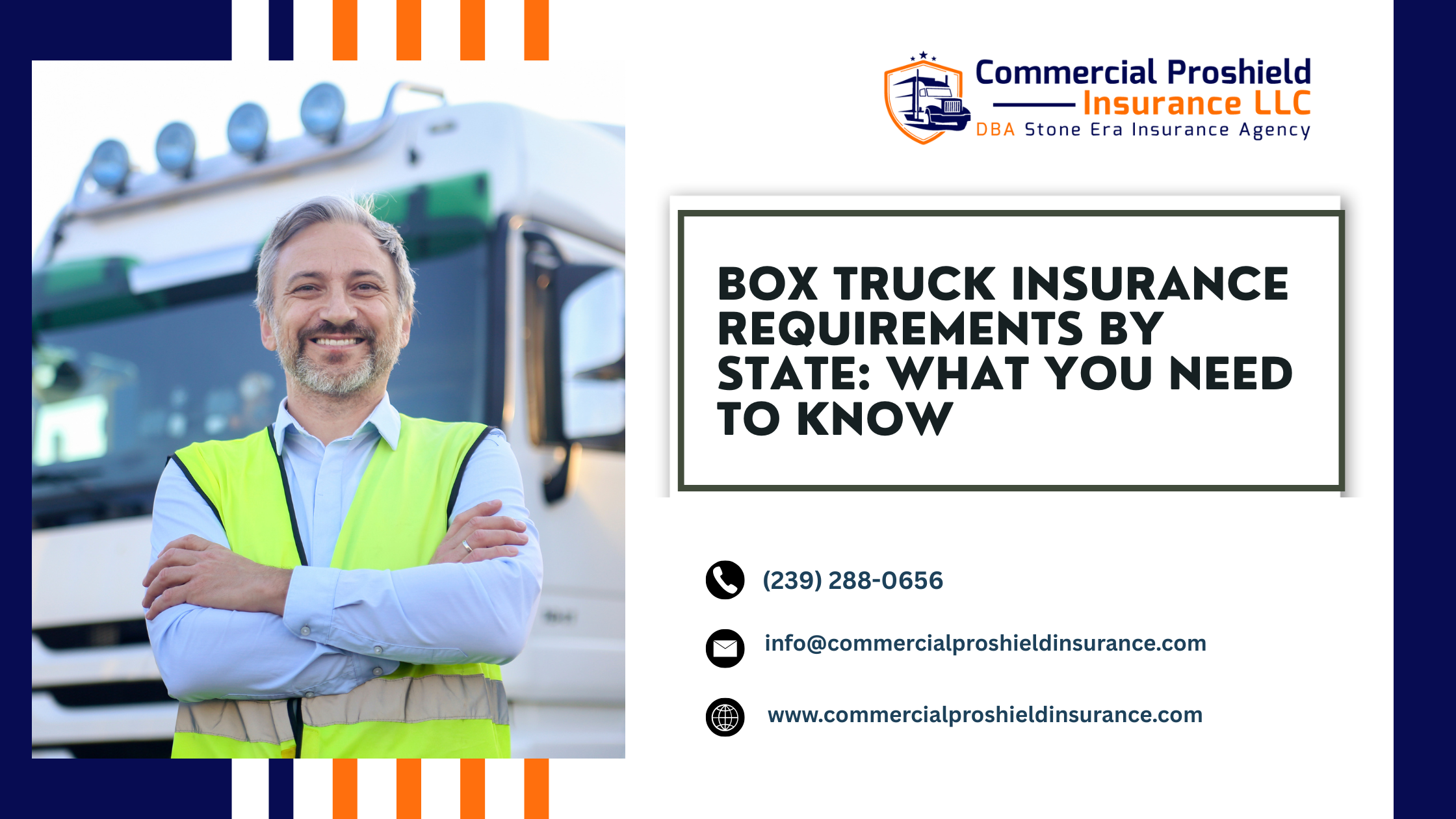Whether you’re running a last-mile delivery service or managing a small logistics fleet, one thing is certain: box truck insurance isn’t optional—it’s required by law in nearly every state. But here's the tricky part—requirements vary depending on where you operate, the size of your truck, and what you haul.
At Commercial Pro Shield Insurance, we specialize in helping owner-operators, fleets, and small business owners navigate these rules so they stay legal and protected on the road. Here’s what you need to know about box truck insurance requirements by state.
What Is Box Truck Insurance?
Before we get into state-by-state rules, let’s clarify what box truck insurance actually is. It typically includes a combination of:
Liability Coverage: Required by law in all states; covers damage or injury you cause to others.
Physical Damage Coverage: Covers repairs to your truck from collisions or other damages.
Cargo Insurance: Covers the goods you're transporting.
Uninsured/Underinsured Motorist Coverage
General Liability or Business Owner's Policy (BOP)
State-by-State Requirements: Key Differences
While all states require commercial liability coverage for vehicles like box trucks, the minimum limits vary. Here’s a quick look at how:
California
Requires a Motor Carrier Permit and proof of liability insurance.
Minimum liability: $750,000 for vehicles over 10,000 lbs GVW carrying general freight.
DMV and DOT registration required.
Texas
Box trucks used commercially must carry at least $500,000 to $1 million in liability, depending on cargo type.
Intrastate carriers need a TXDMV number and proof of insurance.
Florida
- Commercial vehicles over 26,000 lbs GVWR need $750,000 minimum in liability.
For trucks carrying hazardous materials, limits can reach $5 million.
New York
Requires proof of insurance for both intrastate and interstate carriers.
Minimum: $1 million liability for most commercial box trucks.
Georgia
Intrastate carriers: $100,000 per person / $300,000 per accident liability minimum.
Interstate trucks must follow FMCSA (federal) guidelines—starting at $750,000.
👉 Pro Tip: If you cross state lines or operate under a USDOT number, federal regulations apply, and you’ll need to carry at least $750,000 in liability coverage, with higher limits for hazardous materials.
Federal Requirements (FMCSA)
If your box truck operation involves interstate travel or you're under federal regulation, you'll need to meet FMCSA insurance requirements, which include:
Liability insurance of $750,000 to $5 million, depending on cargo.
Cargo insurance (usually required by brokers and contracts).
BOC-3 filing for process agents in each state you operate.
Why It Matters
Operating without proper insurance can result in:
Fines or license suspension
Out-of-service orders
Personal financial liability in case of accidents
Lost contracts with brokers or shippers
Bottom line: You can't afford to guess when it comes to insurance.
Get Protected With Commercial Pro Shield Insurance
At Commercial Pro Shield Insurance, we help truckers and businesses find affordable, compliant, and customized box truck insurance coverage—no matter what state you operate in.
We offer:
Same-day quotes
Multi-state coverage
FMCSA compliance support
Flexible payment options Final Thoughts
Box truck insurance requirements vary by state, but the risk of being underinsured is the same everywhere. Whether you're running routes in Texas, Florida, or California, the best way to stay compliant is to work with experts who understand the laws and the industry.
Ready to get covered?
Contact Commercial Pro Shield Insurance today for a free box truck insurance quote that meets your state's legal requirements and fits your budget.

